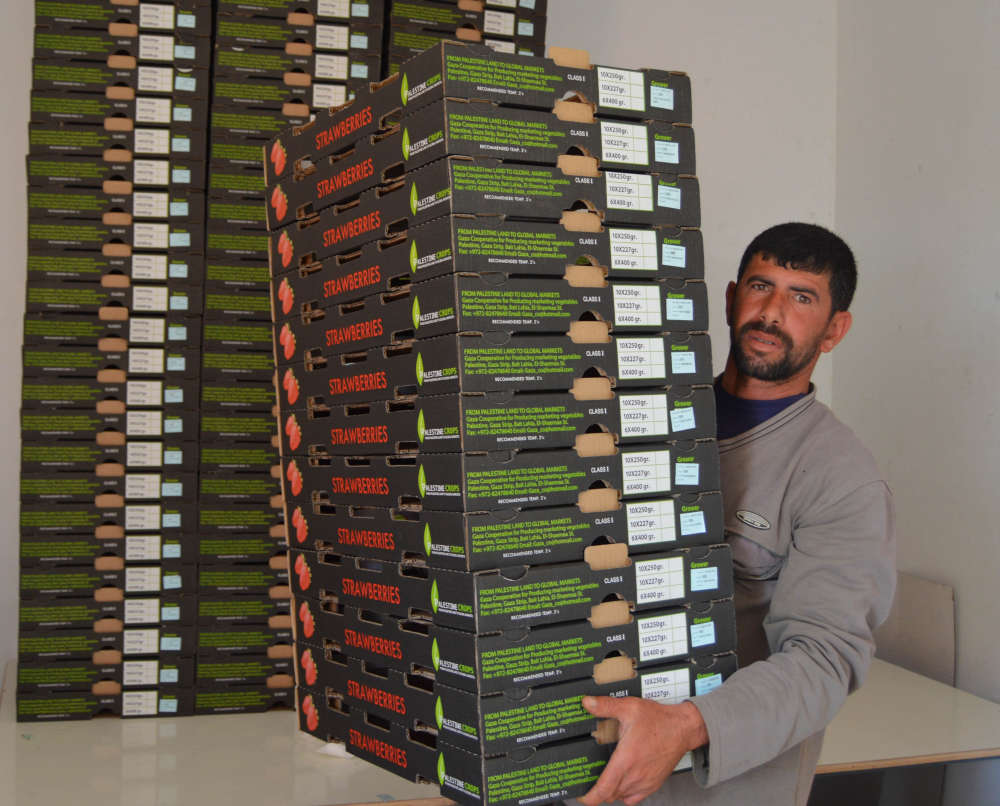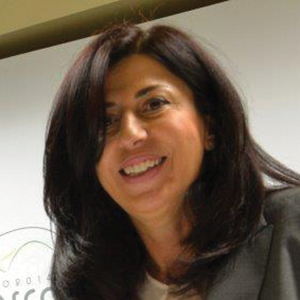Palestine is an old trading nation. We have been at the crossroads of international trade flows for centuries, embedded in cultural and business ties with countries near and far. Given that Palestine is a small resource economy, international trade has to become a major engine for economic growth and development, contributing to creating the jobs that are urgently needed to improve the welfare of all Palestinians. Even though our exports have shown some dynamism in recent years, our overall trade performance has not been very propitious, and we have not yet developed all our trading potential.
Occupation imposes significant constraints on our productive sectors and disturbs our trade, generating high transaction costs and imposing unwarranted restrictions on exports and imports. As a consequence, we have not yet been able to develop a vibrant export sector. Palestine has become an import economy that is highly dependent on Israel both as a destination of our exports and as a source of imports. As a result of trade diversion generated by restrictions and high costs, Israel accounts for 56 percent of Palestinian imports of goods and nonfactor services, not including energy, and is the destiny of 55 percent of Palestinian exports of goods and nonfactor services. Even though Palestine enjoys favorable market access conditions in major markets by virtue of the trade agreements and arrangements in which we participate, as is the case with the European Union, the United States, Canada, the Great Arab Free Trade Agreement GAFTA, and Turkey, we have not been able to fully exploit our potential. Market diversification has to be high on the trade agenda.
Palestinian exports of goods and services in 2015 accounted for just 18.3 percent of GDP, whereas imports of goods and services amounted to around 58.9 percent of GDP, implying an external trade deficit of 41.1 percent of GDP – one of the highest, if not the highest, in the world.i This deficit is financed by earnings of Palestinians in Israel, remittances of Palestinian workers in third countries, and by official transfers, mainly government aid from bilateral donors. The current situation is by no means sustainable. Our future growth and development prospects, as well as the well-being of all Palestinians, depend on drastically altering this situation through a significant increase in our exports of goods and services, the rationalization of our imports, and decreasing dependence on the Israeli economy. The Palestinian government is fully committed to undertaking all the necessary actions to achieve these objectives.
As the Palestinian government actively seeks to achieve economic independence, the State of Palestine National Export Strategy 2014–2018 and the Sectoral Strategy for the Development of the National Economy 2017–2022, which were based on the governmental National Policy Agenda, constitute milestones in this endeavor. These strategies include objectives that the Ministry of National Economy seeks to implement, together with the partnering institutions and the private sector in order to be freed from the shackles of occupation.
The government of Palestine has not been idle. Some important steps forward have already been taken that aim to achieve our national trade objectives. The State of Palestine National Export Strategy 2014–2018 (NES) was adopted in 2014, providing a five-year roadmap for increasing Palestinian exports.ii It seeks to contribute to economic growth and social development, and to better integrate Palestine into the global economy. The NES sets out specific interventions to increase the competitiveness of nine key goods-and-services export sectors and subsectors. In addition, it provides guidance on improving the business environment to realize the vision articulated by the strategy. As the responsibility for increasing exports rests primarily on the private sector, the NES includes cross-sector strategies to tackle constraints in the business environment in the areas of access to finance, improved quality management and trade information, and trade facilitation. The Palestinian Export Council (PEC), a public-private body, has been established to manage and monitor the implementation of the NES.

The implementation of the NES is a very ambitious undertaking that requires significant resources. We need to accelerate the implementation of the various actions contained within it and deepen our ambitions in some areas. The NES, being the first effort in this direction, understandably focuses on those international trade activities in which Palestine already participates. We must recognize that we cannot only rely on exporting what we produce; we need to produce what the international markets demand and diversify our export bundle toward higher value-added, higher-technology products, with increasing returns that exhibit higher elasticity in international markets. That is the challenge we must confront in the near future. The MoNE is undertaking an assessment to identify investment opportunities in the various governorates which will provide valuable information about export potential. It is the private sector, however, that in the end must rise to the challenge.

In order to realize our trade aspirations and achieve economic independence, which is a core high-level policy objective of the Palestinian government, we must devise and implement a development-driven trade regime that will permanently replace the interim arrangements under the Paris Protocol (PP). We have taken important steps in that direction. The Sectoral Strategy for the Development of the National Economy 2017–2022,iii prepared by the Ministry of National Economy (MoNE), annexed to the National Policy Agenda endorsed by the Cabinet, foresees as a priority intervention the adoption of a Palestinian trade policy as a means to building the foundations of the Palestinian economy and to achieving the strategic goal of decreased dependency on the Israeli economy. It also identifies three key measures to be taken: preparing a Palestinian tariff book, enacting trade legislation compatible with WTO requirements, and enacting a foreign trade law. The strategy fully integrates trade policy as an essential, key component, and identifies a string of specific actions to be undertaken. In developing our trade policy, we will stand on the shoulders of that strategy, and its implementation will contribute to our trade policy objectives.
The successful implementation of the national trade policy will certainly require significant legislative developments as well a noticeable capacity upgrade of key public- and private-sector institutions. This will have to be complemented by close and continuous cooperation between the government and the private sector if we are to ensure that trade policies effectively contribute to and improve Palestinian trade performance. Consequently, the implementation of our national trade policy must be driven by active participation in decision making and goal setting by all relevant stakeholders. All stakeholders, public and private, must embrace their responsibilities in this endeavor.

In order to ensure predictability in the trade environment for our exporters and importers, and access to the means to defend our commercial interests in the multilateral trading system, the government of Palestine includes among its objectives becoming a member of the World Trade Organization (WTO). Such membership will not only contribute to improving our domestic trade business environment but will also provide the necessary guarantees to our exporters when entering third markets. First, we will seek observer status to the WTO General Council and its subsidiary bodies. When conditions are ripe we will make a request to start accession negotiations.
None of the efforts that aim to improve our trade performance will be fruitful if the current conditions of unpredictability and occupation-imposed restrictions remain. We will reinforce our efforts to seek the elimination or mitigation of the effects of these restrictions on Palestinian trade. This certainly depends on finding a willing interlocutor on the other side. What needs to be done has been widely analyzed, and there is broad international consensus on the measures that are required. In this regard we will continue to seek the support and intervention of the international community in the form of good offices or otherwise, to contribute to achieving positive results. Israeli impunity has to end.
i World Bank, “Unlocking the Trade Potential of the Palestinian Economy: Immediate measures and long-term vision to improve Palestinian trade and economic outcomes,” forthcoming.
ii Available at https://www.paltrade.org/upload/multimedia/admin/2014/10/5448e728e1bd3.pdf.
iii See “Launch of Sectorial Strategy for the Development of Economy 2017–2022,” Palestine Economic Portal, January 15, 2017, available at http://www.palestineeconomy.ps/page.php?id=6fad7y457431Y6fad7.


